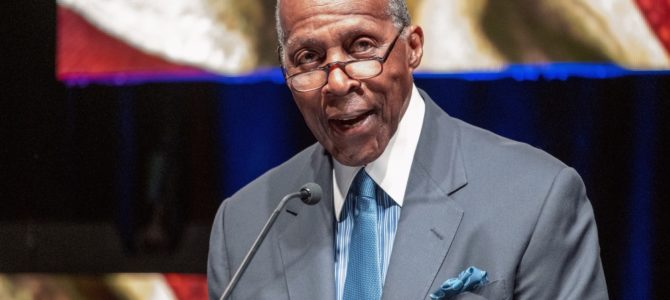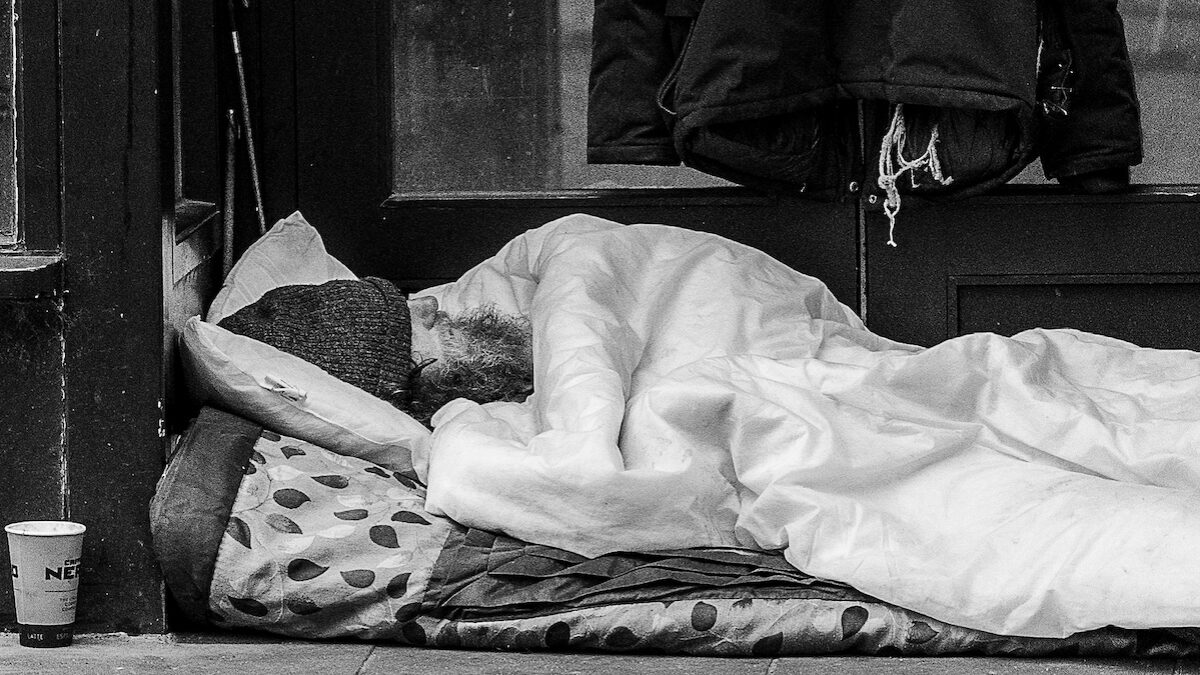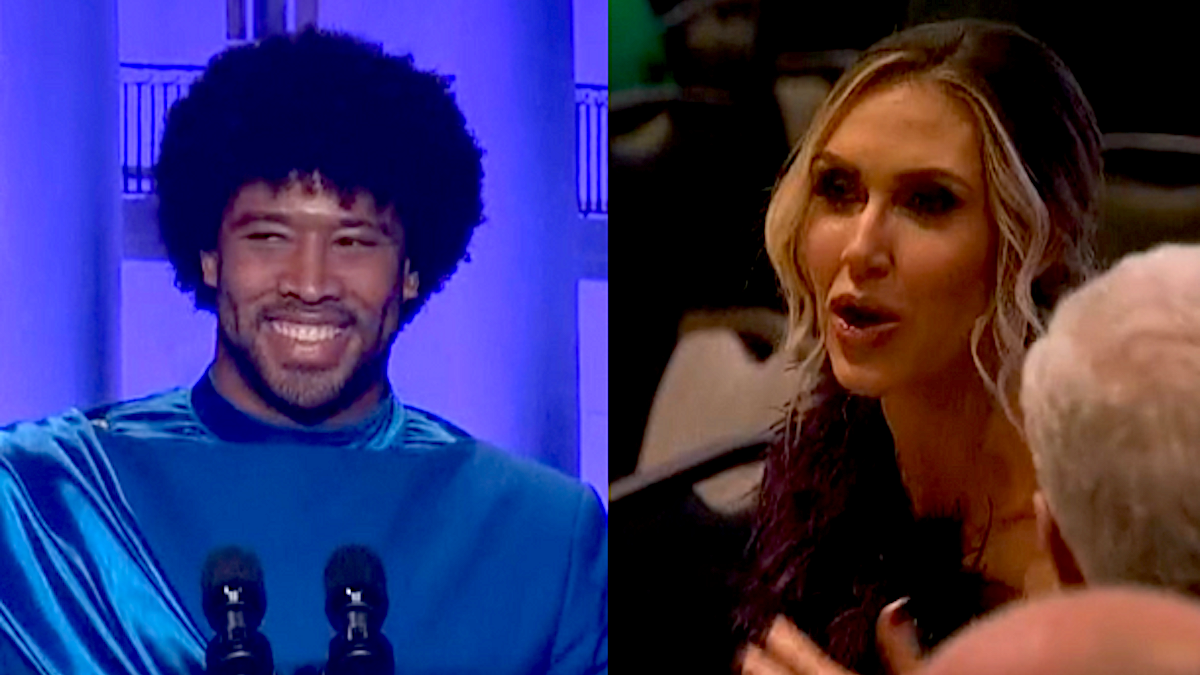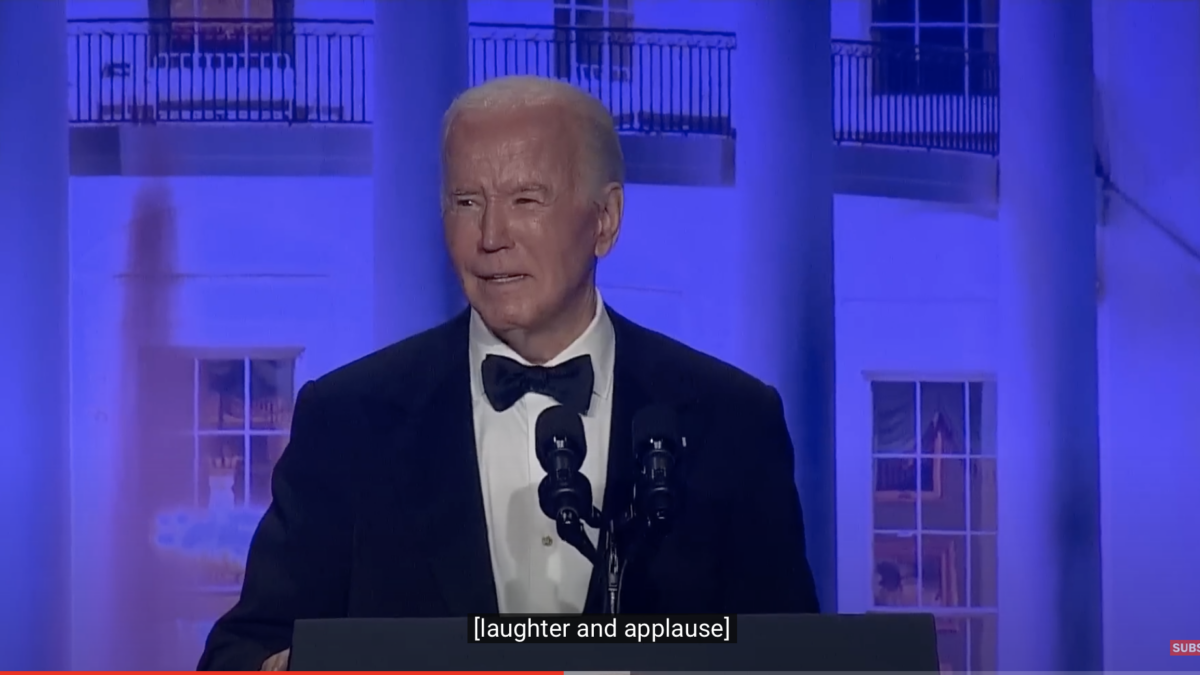
Civil rights activist Vernon Jordan died on March 1. I first met Jordan ten years ago, while working at the law firm Akin Gump, the DC-based firm he spent his time at when he wasn’t at the investment bank Lazard Frères.
Everybody knew Jordan because of his role in the Monica Lewinsky saga. At Akin Gump he was known as a “lawyer’s lawyer,” the kind of guy who wore a suit on casual Fridays and who enjoyed mentoring young lawyers — whatever their background and wherever they were heading in life.
Barack Obama was preparing for his re-election campaign at the time and I vividly remember the joy Jordan showed in seeing America’s first black president. After all, this was a man who grew up in the segregated South and was prohibited from selling insurance policies issued by a white-owned company to black-owned businesses simply because of his skin color (his white supervisor could, though). Obama’s victory in 2008 meant a lot to many people, including me, but seeing its effect on one of the titans of the civil rights era gave me a different perspective, the kind one can only get by shutting up and just listening.
In many ways, Jordan was unique among the remaining public figures who came out of the civil rights era. He never sought elected office, and he turned down Bill Clinton’s offer to become attorney general. Instead, he became a lawyer, the head of the National Urban League, and a businessman.
He was a Democrat, yet like Bob Strauss — the Texan who founded Akin Gump, led the Democratic National Committee, and served as George H.W. Bush’s ambassador to the Soviet Union — he had friends in both parties. He worked with Richard Nixon, a figure as reviled by the left then as Donald Trump is now, and played tennis with Nixon aide John Ehrlichman.
When some criticized him for that, Jordan didn’t cancel his tennis matches or apologize for his behavior. He said: “It is possible, and sometimes absolutely imperative, to work with people with whom you have fundamental disagreements.”
That empathy extended even to those who tried to preserve the segregation that Jordan helped dismantle. For example, after Jordan was shot in 1980, he received a telegram from former Alabama Gov. George Wallace. “I appreciated that wire,” Jordan later said. “It said to me that it is possible for the deepest of divisions to be subordinated to common humanity. It said to me that we are all human beings who have to reach out to each other.”
That led to another famous encounter in which Wallace, wheelchair-bound, asked Jordan to bend down and hug him. He did. Indeed, Jordan relayed to students at Depauw University (his alma mater) shortly before the 2016 election:
The governor of Alabama, a mean old racist who once stood in the schoolhouse door to keep black people out, could no longer stand at all yet he wished he could stand, not to set himself defiantly or thwart history, but rather to embrace me as a brother.
That’s what the woke leftists who control America these days get wrong. History can’t be changed. Differences can’t be canceled. They can, however, be studied, learned from, and transcended — with the hope that, with enough hard work and compassion and trust, the world will become a better place for everybody.
Jordan knew that more than most. He said he wrote his memoir, “Vernon Can Read!,” to convey his experiences growing up in the Deep South to his daughter, to explain how the country had gone from that time “to a time in which a young black girl could be so confident in her humanity that she found it unfathomable that anyone could try to take it away from her.”
Of course, not everybody has the opportunities and confidence Jordan’s daughter Vickee had. That remains a challenge — a challenge that a year of arbitrary and destructive lockdowns have exacerbated. But Jordan’s death should remind us of the opportunities that exist in America. It should remind us of the progress we made in the last century. And it should remind us that compassion, not cancellation, is the key to further progress.
I started re-reading Jordan’s book last summer, while watching anti-government protestors loot and burn down American cities, including many minority communities — the places that Jordan spent his life trying to lift up. I sent him a message thanking him for all the work he had done. His assistant, Gayle Laughlin, wrote back to me:
Hi Scott – Thank you so much for your nice email to Mr. Jordan. Unfortunately, he is out of the office under a doctor’s care. He is not taking phone calls or emails, but I will make sure he sees yours. I’m sure he will be pleased with your words.
Thank you,
Gayle
I hope he was pleased. We should all be thankful for the life he lived and the examples he set — and start following them, instead of relishing the destruction of others.









